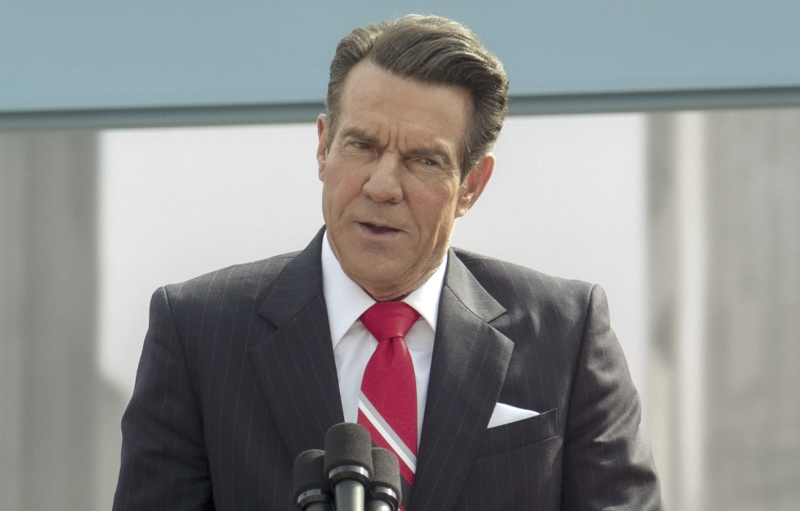The yet broader point here is that Reagan, according to this film, was basically solely responsible for the eventual downfall of the Soviet Union, because he showed the people of the world what freedom meant. “I knew that he was the one,” says Viktor Petrovich, the retired spy played by Voight as a narrator figure throughout — meaning the one who would bring it all down. The script is based on Paul Kengor’s The Crusader: Ronald Reagan and the Fall of Communism, and Kengor has said Viktor is based on a number of KGB agents and analysts who tracked Reagan for years.
That point is made early and often. The rest is a history reel, with lots of glorious, loving lighting around our star. We go back to his younger years, learning about his mother and what she taught him about faith, and then his Hollywood years as an actor, Screen Actors Guild president (and a Democrat) before fully committing to politics, and the GOP.
We also see a newly divorced Reagan meet a winsome Nancy Davis, who will become his second wife, loving partner and constant companion. Like Quaid, Penelope Ann Miller is a perfectly fine actor who has little nuance to work with here. Together, they embark on the path to political stardom, starting with the California governorship. When they arrive at a neighbor’s home to campaign, the housewife at the door hears Reagan’s “RR” initials and thinks he’s Roy Rogers.
But a decade and change later, Reagan is sworn in as president, beginning his eight years in office. “It became my obsession to understand what was beneath the facade,” says Voight’s Petrovich, explaining why Reagan was so consequential.
Maybe, then, he could let us know?
Because when this movie ends, with the president’s death in 2004 a decade after announcing he had Alzheimer’s disease, we don’t know a lot more than when we began about a figure so influential in American politics.
Sure, we get all the great hits. ”Mr. Gorbachev, tear down this wall!” we see him say in 1987 in Berlin, a scene with much buildup.


